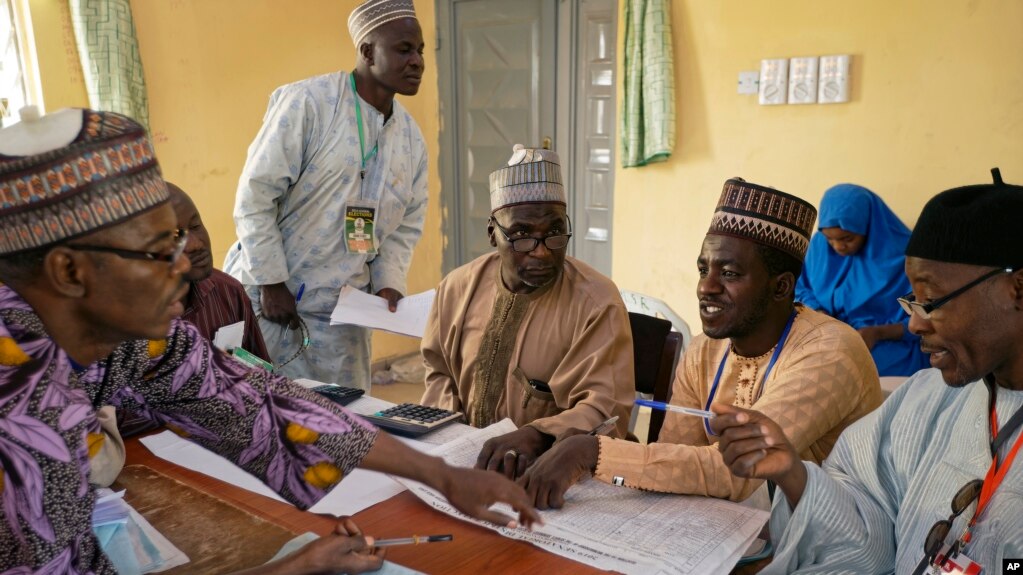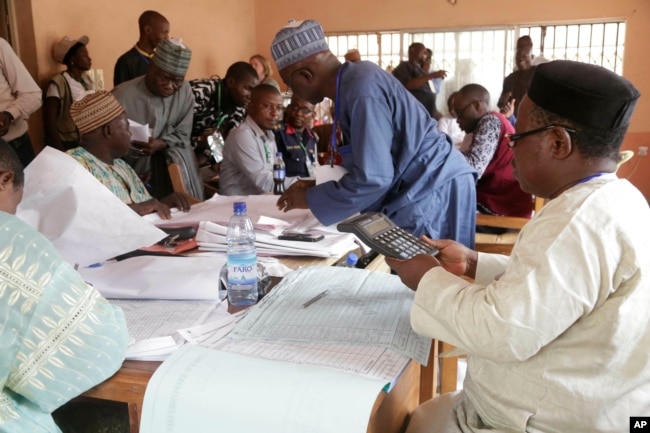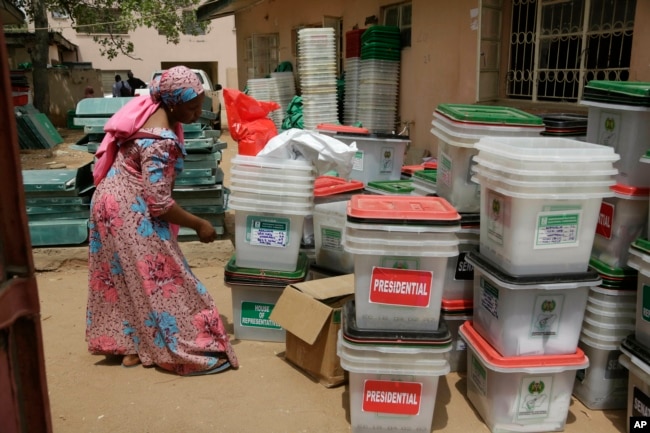
Nigerians waited for election results Sunday as vote counting continued from the nation's hotly-contested presidential poll.
Voting continued in a few remote areas, and Nigeria's Independent National Electoral Commission (INEC) said it will reschedule elections in some parts of Lagos, Rivers and and Anambra states where voting was disrupted Saturday. It was not immediately clear which districts were affected.
VOA English to Africa reporter Peter Clottey, in Abuja, reports that INEC is expected to start announcing election results on Monday.
Both the incumbent president, Muhammadu Buhari, and his main opponent, Atiku Abubakar, are already predicting victory.
 Electoral officials compile voting results at a collation center in Yola, in Nigeria, Feb. 24, 2019.
Electoral officials compile voting results at a collation center in Yola, in Nigeria, Feb. 24, 2019.
Abubakar's Peoples Democratic Party said it was doing well in several areas, including the comerical capital Lagos, and Abubakar released a statement saying “very soon the living nightmare of the last four years will come to an end so that together we will get Nigeria working again."
Security forces confirmed that 16 people were killed in election-related violence.
Despite the rescheduling of some elections, INEC said it was "generally satisfied" with the vote, the French Press Agency reported.
Political tensions were high last week as Nigerians prepared to elect a new president and parliament. During the campaign, Buhari's All Progressives Congress and the main opposition Peoples Democratic Party accused each other of attempting to fix the outcome.
Earlier this week, Buhari urged the military to be "ruthless" with anyone who tries to interfere in the voting process. The remark drew sharp criticism from Abubakar, who said the military has "no role to play" in the elections.
President Buhari was among the first of the country’s more than 72 million eligible voters to cast a ballot in his hometown of Daura when the polls opened Saturday for the country's delayed election.
Nigeria's elections were initially planned for February 16 but the electoral commission, citing logistical issues, abruptly postponed them just five hours before polling stations were set to open.
After ruling briefly as a military dictator in the 1980s, Buhari won the 2015 election, becoming the first opposition candidate to defeat a sitting president.
Source: Voice Of America (VOA)


No comments:
Post a Comment